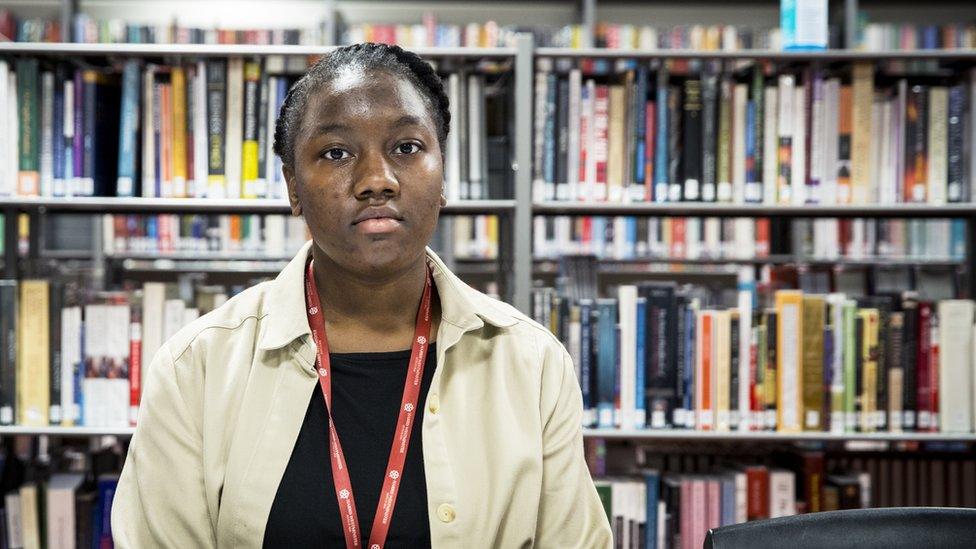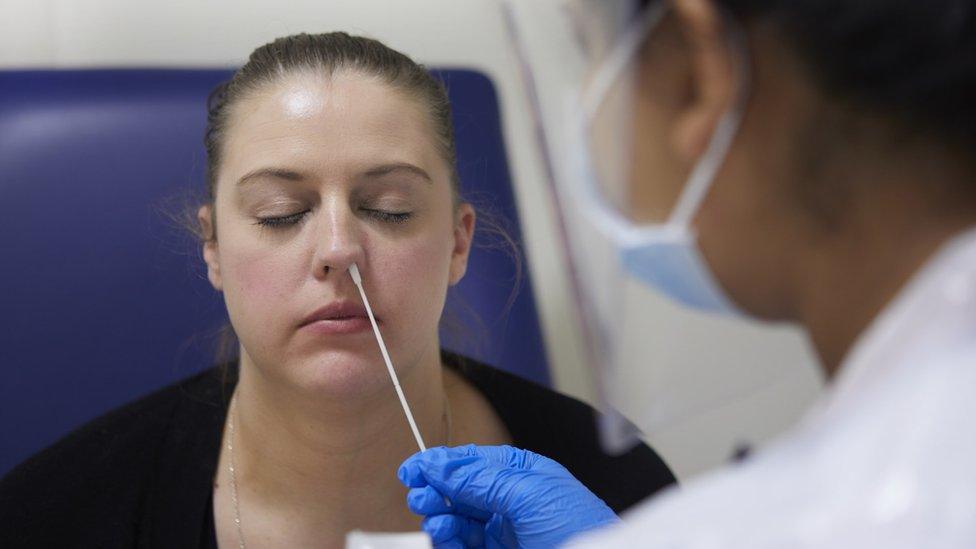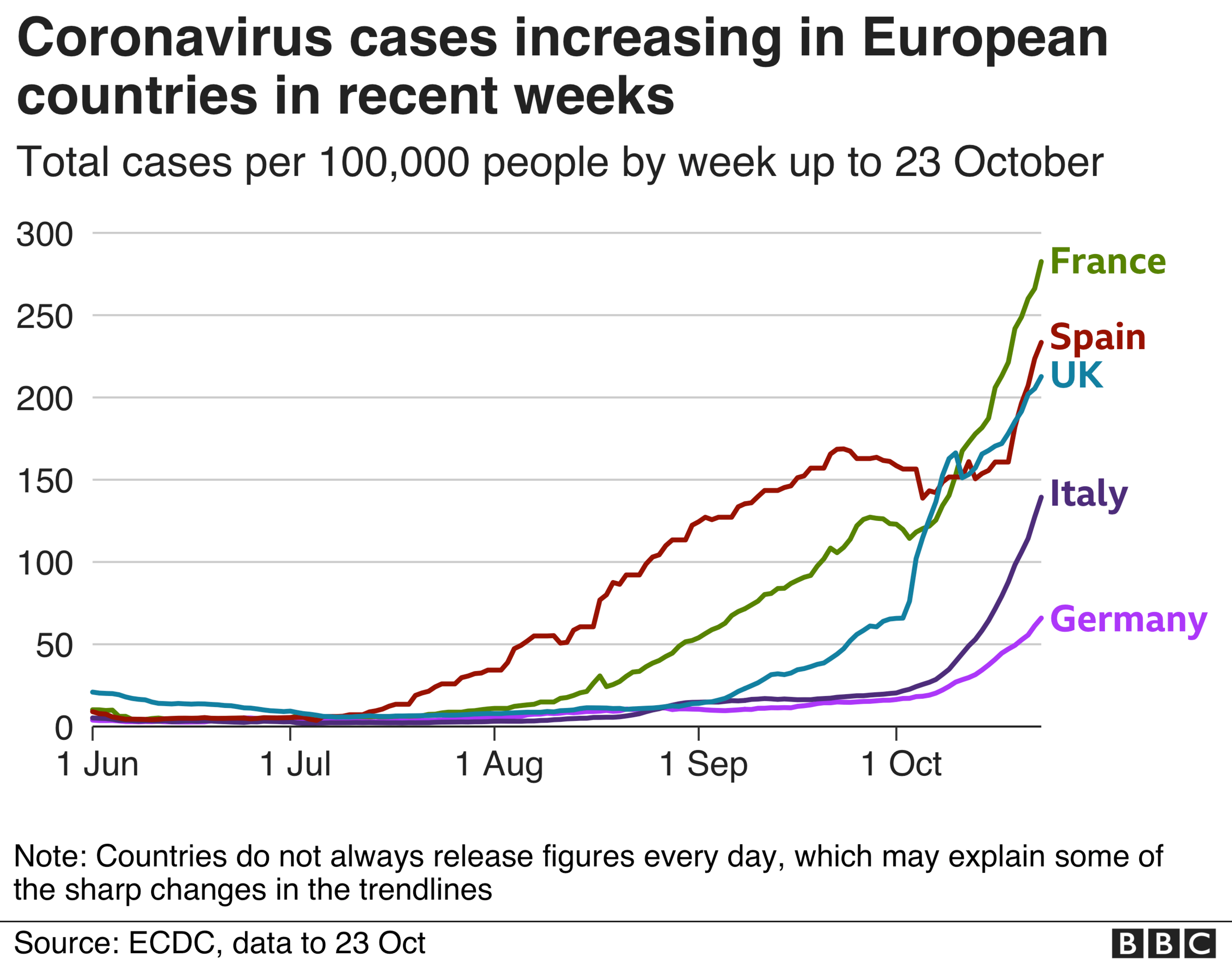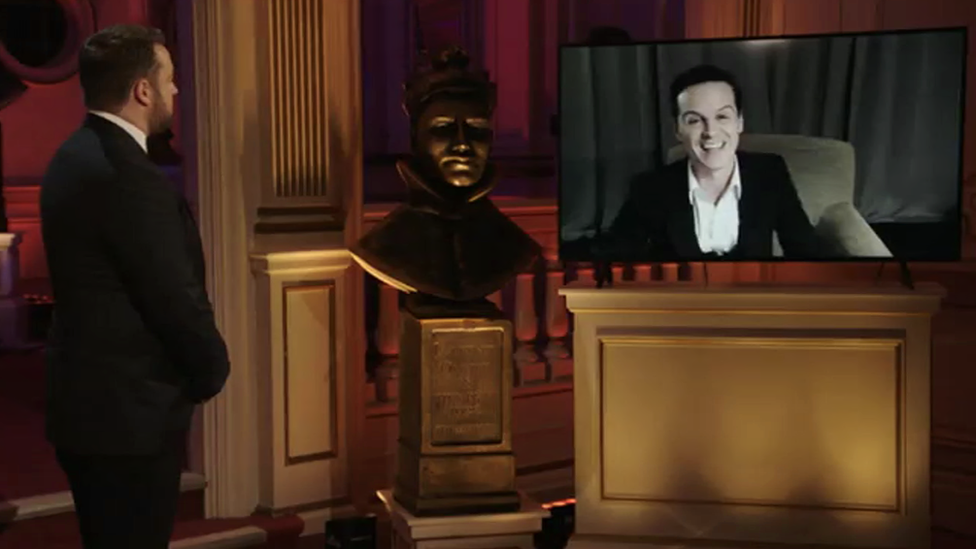Covid-19: Free meals row, 'Generation Covid' and Oliviers' message of hope
- Published
Here are five things you need to know about the coronavirus pandemic this Monday morning. We'll have another update for you at 18:00 BST.
1. Meals row rumbles on
The government is continuing to insist it will not bow to pressure, including from some Conservative MPs, to fund free meals for school children in England over half-term. More than 800,000 people have signed a petition, started by footballer Marcus Rashford, calling for provision to continue. Some local councils have promised to supply meal vouchers and, thanks to Rashford, scores of pubs, cafes and restaurants have also offered free food. However, Labour says a postcode lottery means many will lose out. One woman, Danielle, told the BBC what holiday hunger felt like for her as a child.
Marcus Rashford and his mother Melanie helped out at FareShare Greater Manchester

2. 'Generation Covid' bearing the brunt
People aged 16 to 25 are more than twice as likely as older workers to have lost their job during this time BBC Panorama has found. Research seen by the programme also suggests the education gap between privileged and disadvantaged young people has widened further. Elsewhere, a report suggests deserted high streets caused by local lockdowns and home working are taking a toll on the number of job vacancies.

Roberta, aged 16, says it has been a struggle to keep up with her peers from privately educated backgrounds

3. Tests on demand - for a price
People without symptoms who want to get a coronavirus test will now be able to pay for one at Boots stores across the UK. The firm says a nasal swab test which gives results in 24 to 48 hours is being introduced now, and within weeks an even faster test will offer customers results in just 12 minutes. The initial cost will be £120, but Boots says it hopes that price will fall significantly if there is sufficient demand for the service. People with one of three key coronavirus symptoms - a fever, a new continuous cough or a loss of smell or taste - should seek a free NHS test.


4. 'Grit our teeth'
Tough new coronavirus measures are being introduced in Italy and Spain. Madrid has declared a national state of emergency and imposed a night-time curfew country-wide. Restrictions have also been imposed on travel between regions. In Italy, bars and restaurants will close for table service at 6pm, and gyms, cinemas and theatres will shut. Prime Minister Giuseppe Conte told the nation he hoped that "by gritting our teeth" for a month "we'll be able to breathe again in December." Case numbers, hospital admissions and deaths have been increasing across Europe - see our global tracker for more.


5. Oliviers' message of hope
It's a hugely difficult time for theatres and others arts venues, but at Sunday night's Olivier Awards, some of the biggest stars of the stage tried to encourage those working in the industry to stay positive. Fleabag's Andrew Scott urged them to "keep the faith" as he accepted his best actor trophy by video link. Another winner, director Marianne Elliott, said the event must remind everyone "what theatre is, what it can do, and how it can touch hearts, minds and souls".

Andrew Scott said a sense of humour had helped many in the theatre world get through this period

And don't forget...
Find more information, advice and guides on our coronavirus page.
Plus, mother-and-baby units provide vital support for new mothers and pregnant women with serious psychological problems. Find out why they are facing unique challenges right now.


What questions do you have about coronavirus?
In some cases, your question will be published, displaying your name, age and location as you provide it, unless you state otherwise. Your contact details will never be published. Please ensure you have read our terms & conditions and privacy policy.
Use this form to ask your question:
If you are reading this page and can't see the form you will need to visit the mobile version of the BBC website to submit your question or send them via email to YourQuestions@bbc.co.uk, external. Please include your name, age and location with any question you send in.

PANORAMA: Belly Mujinga: Searching for the Truth
ENSLAVED WITH SAMUEL L JACKSON: What happened to the 12 million enslaved Africans who were stolen from their homes?
